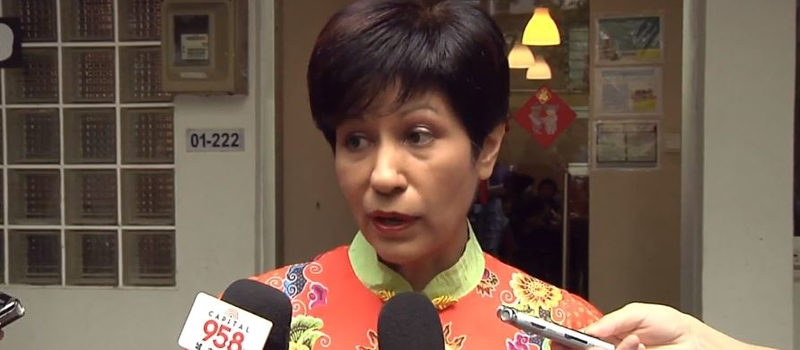On Saturday, the Workers’ Party (WP) Youth Wing organised a love online Zoom webinar titled, “The COVID-19 Crisis: Through Medical, Economic, and Legal Lenses“ featuring public health expert Dr Jeremy Lim, infectious diseases specialist Dr Leong Hoe Nam, lawyer Harpreet Singh and economist Yeoh Lam Keong. The webinar, which was a panel discussion on how the current pandemic has and is affecting the country, was also streamed on the party’s Facebook page.
Mr Yeoh, who was a senior economist and strategist at the Singapore Government Investment Corporation (GIC) for 26 years and is heavily involved in economic policy research, touched on the economic policy support rolled out by the government in the wake of this crisis which he believes is “inadequate”, although “can be improved”.
The country’s reserves are large enough to triple economic support
Mr Yeoh who is also a former adjunct professor at the Lee Kuan Yew School of Public Policy, acknowledged the three budgets that have been announced by the government since the beginning of the year—Resilience, Solidarity, and Unity budgets—but added that much more needs to be done.
Mr Yeoh warned that the crisis will be as bad or probably worse than the great financial crisis back in 2007-2008. He predicted, “Unemployment and small and medium sized enterprises (SMEs) are going to be worse hit. We have 200,000 SMEs in Singapore that account for 65% of employment, 50% of our output.”
He went on to stress the importance of supporting SMEs through this dire period, noting that “If we do not support sufficiently our industry and our industrial capacity, especially our SME capacity through this period, it is ridiculous because this catastrophe is like an act of god.”
He stressed, “You cannot, because of a catastrophe, allow the market under catastrophic conditions to sort out the winners and losers and who continues in business and who does not. That would be economic madness.”
Mr Yeoh then suggested that the risk that is to come should be spread equitably between all parties—the government, firms, employers, banks, etc. This needs to be done the basis of who has more resources, which in this case is the government and government reserves, he added.
The economist explained that the lockdowns—which are necessary for public health—will do a lot of economic damaged. However, given that the lockdowns are for the public good, it should be publicly provided for.
Mr Yeoh noted again that the country’s reserves are “large enough” that even if the amount spent so far on government packages were doubled or trebled, the reserves “will easily replenish” within three to five years under normal conditions.
Support for SMEs: Expanded wage support, rental relief, and increased line of credit
Expanded wage support
Therefore, Mr Yeoh suggested that the focus should be on supporting SMEs by extending wage supports.
“We have done well in terms of supporting 75 percent of wages for the two lockdown months. We need to extend that, make that more visible and say that should there be any more lockdown months, we will do the same,” he suggested, adding that employers cannot be expected to live in uncertainty from month to month.
He added, “We should also support wages at 50 percent for three months after, during the recovery period and maybe another 25 percent as the recovery gains steam.”
Rental relief
The next suggestion was to provide better rental support for SMEs, given that rentals are a huge deal in land-scarce Singapore.
Mr Yeoh noted, “So what we need to do is two things. Firstly, there needs to be sufficient rent annulment. SMEs that are affect should not have to be able to pay rent during lockdown. We have already given them effectively one month because of passing through of tax credits, we need to find the other month and in future months if necessary.”
He went on, “Also, when SMEs are recovering, they need to be able to not just have annulment during the shutdown zero-business period. During the recovery period, they need to be able to adjust to reduce the expected rentals. New Zealand has done that during their great Auckland earthquake. Germany has done that provision. We can do the same.”
Increased line of credit
Finally, Mr Yeoh recommended a tremendous stepping up for line of credit to SMEs, many of which have had this cut by 50 percent.
Noting that he spoke to a few colleagues, Mr Yeoh said they came up with a recommendation for this particular point. He said, “What we recommend is we are able to give fairly steadily S$1 million line of credit to all our SMEs, capped at S$1 million each and after one year, enable them to write off 100,000 max losses from the crisis and pay with a subsidised interest rate after that.”
“I think that this is necessary to prevent our SMEs from being hollowed out,” said Mr Yeoh.
To read more about Mr Yeoh’s points raised in the discussion, read this other article.







